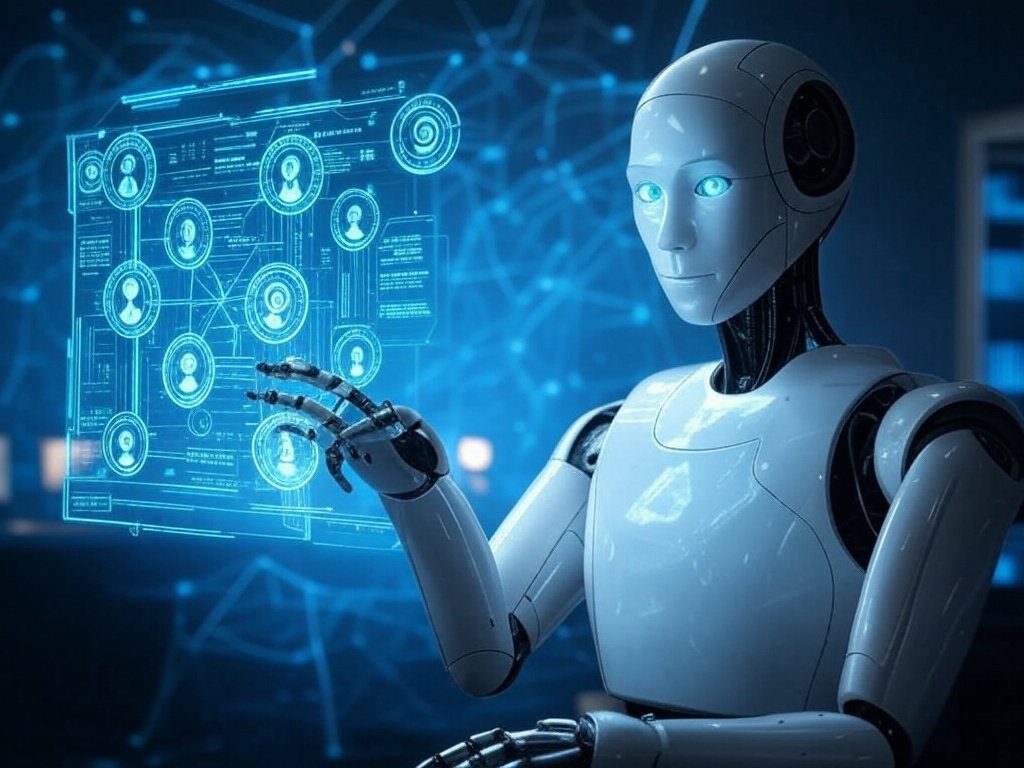What Is an AI Agent?
An AI agent is an advanced autonomous system designed to perceive its environment, process information, and take actions to achieve predefined objectives. These intelligent agents leverage cutting-edge technologies, including machine learning, natural language processing (NLP), and decision-making algorithms, to function without direct human intervention.
AI agents are revolutionizing industries by streamlining processes, improving automation, and enhancing decision-making capabilities. From customer service chatbots to self-driving cars, these agents are embedded in various applications, making businesses more efficient and responsive.
Key Characteristics of AI Agents
AI agents possess several defining characteristics that distinguish them from traditional software systems:
1. Autonomy
AI agents operate independently, making real-time decisions based on data inputs. Unlike conventional software that follows predefined rules, these intelligent systems assess situations dynamically and take appropriate actions without constant oversight.
Example: Virtual assistants like Siri and Google Assistant analyze voice commands, retrieve relevant information, and execute tasks autonomously.
2. Adaptability
These agents continuously learn from past experiences and improve their performance over time through machine learning models. They refine their algorithms based on new data, allowing them to become more efficient and accurate.
Example: AI-powered fraud detection systems learn from past fraudulent transactions and enhance their ability to detect new fraudulent patterns.
3. Reactivity
AI agents can respond dynamically to environmental changes. Whether adjusting a marketing campaign based on user engagement data or modifying a robot’s movement in response to obstacles, these systems exhibit real-time adaptability.
Example: AI-driven stock trading algorithms react to market fluctuations, making rapid investment decisions.
4. Proactiveness
Rather than just responding to inputs, AI agents can anticipate needs and take proactive steps to optimize outcomes.
Example: Smart thermostats, such as Nest, learn user preferences and adjust room temperatures proactively to enhance comfort and energy efficiency.
5. Multi-Agent Collaboration
Some AI agents function in coordination with others, collaborating to solve complex problems efficiently.
Example: Swarm robotics, used in warehouse automation, involves multiple AI-driven robots working together to transport goods.
Benefits of AI Agents
The adoption of AI agents provides numerous advantages across various sectors, significantly transforming business operations and consumer experiences.
Enhanced Productivity
By automating repetitive tasks, AI agents free up human employees to focus on higher-value work, thereby increasing overall efficiency.
Example: AI-driven email sorting tools filter spam and categorize messages, reducing manual effort.
Cost Savings
AI agents reduce operational costs by minimizing the need for human intervention, particularly in areas such as customer service, logistics, and data analysis.
Example: AI-powered chatbots reduce customer support costs by handling routine inquiries without human agents.
Improved Customer Experience
AI-driven virtual assistants provide instant, personalized responses, enhancing customer satisfaction and engagement.
Example: E-commerce recommendation engines analyze purchase history to suggest relevant products, increasing sales and user engagement.
Faster Decision-Making
AI agents can process vast amounts of data quickly and generate actionable insights, helping businesses make informed decisions in real-time.
Example: AI-driven diagnostics in healthcare help doctors detect diseases faster by analyzing medical imaging data.
Scalability
Organizations can deploy AI agents at scale to manage growing workloads, ensuring consistent and reliable performance across operations.
Example: AI-based traffic management systems optimize signal timing across entire cities to reduce congestion.
Who’s Leading the Charge on AI Agents?
Several tech giants and innovative startups are at the forefront of AI agent development, pushing the boundaries of intelligent automation.
- OpenAI – Known for breakthroughs in generative AI, OpenAI’s ChatGPT showcases how AI agents can enhance communication and problem-solving.
- Google DeepMind – Specializes in reinforcement learning, developing AI systems capable of solving intricate challenges like protein folding.
- Microsoft – Investing heavily in AI copilots and automation tools that assist users in productivity applications.
- Anthropic – Focused on creating AI systems that prioritize safety and alignment with human values.
- Meta, Amazon, and Apple – Advancing AI-driven virtual assistants, smart home devices, and personalized recommendation engines.
The Future of AI Agents
The evolution of AI agents is accelerating, with transformative implications for how humans interact with technology. The coming years will see significant advancements in several key areas:
Hyper-Personalization
AI agents will refine their ability to deliver highly personalized experiences, adapting to user preferences and behaviors.
Example: AI-powered virtual shopping assistants will suggest clothing styles based on a user’s fashion history and body measurements.
Seamless Business Integration
Organizations will integrate AI agents into every aspect of their operations, from HR and marketing to logistics and customer service.
Example: AI-driven HR bots will streamline candidate screening, identifying top talent more efficiently.
Advanced Decision-Making
AI will play a critical role in strategic planning, assisting leaders in making high-level business and policy decisions.
Example: AI-powered financial advisors will provide personalized investment recommendations based on real-time market data.
Autonomous AI Ecosystems
Multiple AI agents will collaborate, executing multi-step tasks with minimal human input.
Example: Smart factories will have interconnected AI-driven robots managing production, inventory, and quality control.
Ethical AI Considerations
As AI agents gain more autonomy, ensuring responsible AI governance will be crucial to preventing biases, maintaining transparency, and protecting user privacy.
Example: AI ethics boards will oversee decision-making processes to ensure compliance with legal and ethical standards.
Also Read: Essential Linux Commands for Beginners
Final Thoughts
AI agents are at the forefront of intelligent automation, transforming industries by optimizing efficiency, enhancing decision-making, and driving innovation. As technology evolves, businesses and consumers alike will experience profound benefits from these autonomous systems. However, with great power comes great responsibility, ensuring ethical AI development will be essential in shaping a future where AI agents work harmoniously with humans.











